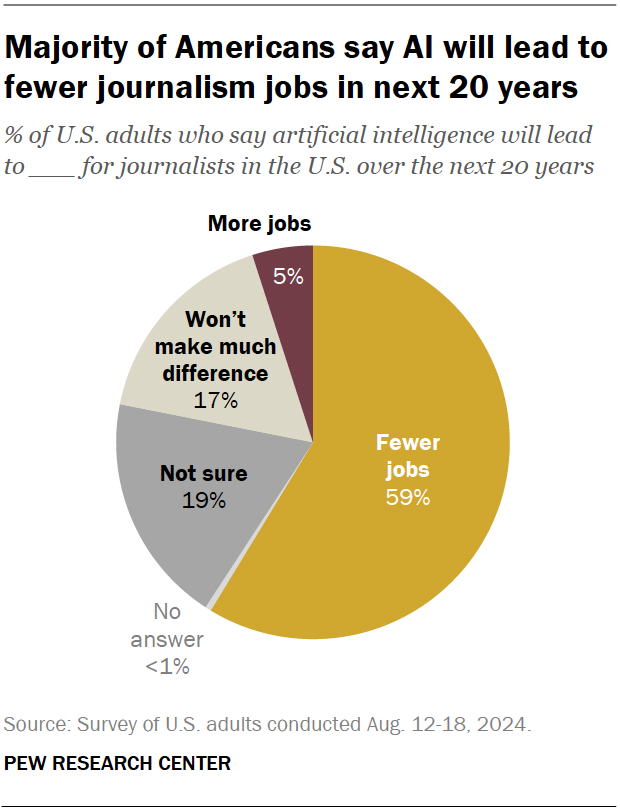Understanding Americans' Pessimism Towards AI
Americans are increasingly pessimistic about AI, reflecting concerns over national security, employment, and societal impacts. Understanding these shifts is crucial.

Understanding Americans' Pessimism Towards AI
In recent years, Americans have increasingly become more pessimistic about Artificial Intelligence (AI). This trend reflects broader societal concerns about the technology's impact on national security, employment, and daily life. Surveys and polls indicate that nearly nine out of ten Americans believe foreign governments will use AI to attack the U.S., underscoring heightened anxieties about AI's role in global conflicts and national security.
The growing skepticism towards AI can be attributed to several factors, including concerns about job displacement, national security threats, and the potential for AI to exacerbate societal inequalities. Additionally, the increasing visibility of AI in media and its role in shaping public discourse have contributed to a more critical appraisal of AI's benefits and risks.
Key Factors Contributing to Pessimism
-
National Security Concerns: The belief that AI could be weaponized by foreign entities has significantly influenced public opinion. This fear is compounded by reports of AI being used in cyberattacks and other forms of digital warfare, suggesting a new frontier in international conflict.
-
Job Displacement: The automation of jobs, facilitated by AI, remains a significant concern for many Americans. While AI has created new job opportunities, it has also led to the displacement of workers in sectors where tasks are easily automated, contributing to economic uncertainty.
-
Ethical and Societal Impacts: The misuse of AI in creating deepfakes, disinformation, and surveillance technologies has raised ethical questions about privacy and the integrity of information. These concerns have further eroded public trust in AI systems.
Background: AI in the U.S.
The United States has been at the forefront of AI development and deployment, with significant investments in research and development across various sectors. However, compared to other countries like Argentina, the U.S. ranks high in AI adoption but also faces unique challenges in managing public perception and regulatory frameworks.
AI Adoption and Use
-
High Adoption Rates: The U.S. is among the leading countries in AI adoption, with applications in industries ranging from healthcare to finance. This widespread integration has both accelerated innovation and raised concerns about the technology's impact on society.
-
Regulatory Challenges: As AI becomes more pervasive, there is a growing need for clear regulations to ensure that AI systems are developed and used responsibly. This includes addressing issues related to privacy, security, and accountability.
Industry Impact and Future Directions
The shift in public opinion towards AI has significant implications for the tech industry and policymakers. Companies are facing increased pressure to demonstrate the benefits of AI while addressing concerns about its misuse. Governments are also under scrutiny to develop effective regulatory frameworks that balance innovation with societal safeguards.
Implications for Policymakers
-
Regulatory Frameworks: Policymakers must develop and implement regulations that ensure AI is developed and used in ways that mitigate risks and maximize benefits. This includes addressing issues related to data privacy, cybersecurity, and AI's impact on employment.
-
Public Engagement: There is a need for more transparent communication about AI's capabilities and limitations to address public concerns and foster a more informed dialogue about the technology's role in society.
-
Education and Training: Investing in education and retraining programs can help prepare workers for an AI-driven economy, reducing fears about job displacement and ensuring that the benefits of AI are more equitably distributed.
Context and Implications
The growing pessimism towards AI among Americans reflects broader societal anxieties about the rapid pace of technological change and its impact on daily life. As AI continues to evolve and become more integrated into various sectors, addressing these concerns will be crucial for fostering public trust and ensuring that AI is developed and used in ways that benefit society as a whole.
International Perspective
The U.S. is not alone in grappling with AI's societal implications. Globally, there is a rising awareness of the need for international cooperation to address AI's challenges, including setting standards for AI development and use, and ensuring that AI contributes to global peace and prosperity rather than exacerbating existing tensions.
Ultimately, the future of AI in the U.S. and globally will depend on how effectively these challenges are addressed, balancing innovation with societal responsibility to ensure that AI enhances human life without compromising security, privacy, or economic stability.



